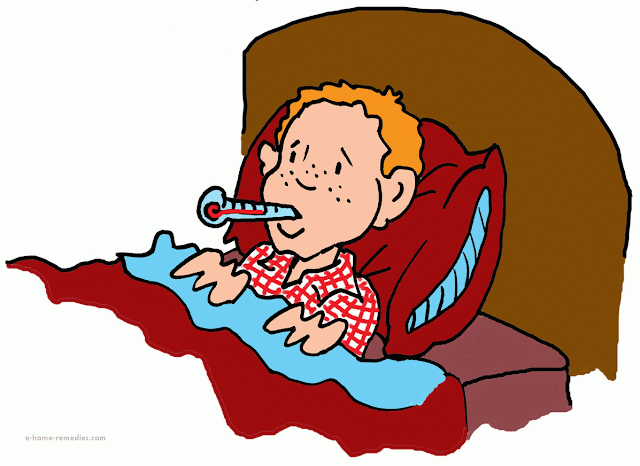My Sick Experience
It was just about 24 hours ago when I had surgery in Oslo University Hospital. I really did not expect things to unfold very quick, leaving me surprised and unprepared. Generally, I can say no one wants to get sick, especially when one is in a foreign land. However, there are things I learned from my sick experience, which are worth-sharing to others as well.
My sickness
After ten days of returning from the Philippines, I noticed I had some fresh lower gastrointestinal bleeding, which is coupled with severe throbbing pain and high fever. Due to symptoms, it resulted for me not to move well and has affected the way I do tasks at work. So, I was forced by my sister to ask medical help.
Treatment
First, we went to the nearest Emergency Room where a so-called legevakt will address my condition. A legevakt is a doctor, who an individual can approach in acute and emergency situations. On the other hand, all taxpayers have their own fastlege or regular physicians for consultations and for treatment of non-urgent illnesses. Knowing I am experiencing an unusual condition, I went to a legevakt.
Given it is public health service, I waited for about one hour (quite fast) to get medical help. People are generally triaged according to possible diagnoses, rather than the magnitude and risks of the signs presented. So lower GI bleeding even with fever of 40 degrees Celsius may not be prioritized still. Also, I noticed nurses act more independently and more collaboratively with physicians than how we do it in the Philippines. This is something I appreciated. The nurse took history and decided to do some blood tests before the physician makes his assessment, diagnosis and treatment. Although, I saw some differences on how assessment was made, I just merely observed for my own sake. Then, the legevakt decided to send me to acute admission.
An acute admission is different from an Emergency Room where the legevakt work. An acute facility is generally an observation facility where health personell decides whether a hospital admission is necessary or not. Triaging is also done here. Given that the legevakt made recommendations already, I was prioritized. It was there where I got medicine for fever and pain. All laboratory tests were repeated according to protocols. I was having chills and high fever while all tests were undergoing. I was told to have a visualization procedure to assess the source of bleeding so I was told not to eat and drink until the assigned doctor came. After almost four hours of waiting, the doctor made her assessments and tried to determine the cause. Unfortunately, I was in too much pain such that I can not tolerate the examination, so the doctor decided for me to undergo the examination under sedation. Thereafter, this requires to be admitted in the hospital ward.
Without any questions asked, I was admitted to the hospital ward. This was my first time to go inside a Norwegian hospital. The facilities are quite advanced, but the need for more hospital beds is evident. They continued to give medicine for fever and pain, while IV fluids were given intermittently from time to time. I was expecting anti-infectives and anti-bleeding medications to be started, but there was none. I continued to have nothing by mouth, so I started feeling more acid on my stomach, and did not get any antacids for it. This is something I saw as a major difference. However, I understand antibiotics were not given to help prevent spread of resistant microorganisms. In addition, the doctors decided for me to undergo Magnetic Resonance Imaging, which paved the way for the decision to submit me for surgery.
For a total of 75 hours of unable to eat and drink anything, I lost a total of 10 pounds. This lead me to feel impatient, frustrated and helpless. The system is designed for people to wait for their turn, considering triage and availability of resources. So since I was young and only with lower GI bleeding, I was considered the least priority compared to few patients inserted in the priority list due to their age, diagnosis and risks. This resulted for my operation to be canceled twice. At last, I was operated June 29 midnight.
I was expecting other routines we usually do in the Philippines, but it did not happen. I got to learn the simplicity of the health plan and its rationale. After an operation requiring sedation, I was immediately instructed to drink and possibly eat. Although I was still feeling the downing effect of the sedatives, I started moving and eating several hours. There was few who could help me so I have to force myself to be well. This is because the hospital has very strict visiting hours and prohibits family members sleeping with patients, which is common in the Philippines.
Fortunately, although not all symptoms were gone, I was advised to go home just about 14 hours since the surgery. I was instructed to come back for follow-up visits.
Differences
1. I did not have to spend a single money to get the treatment including all medicines used, blood tests, MRI in the ER, Acute admission, Hospital, Operating Room, and even with the taxi from the ER to Acute Facility.
2. I only got IV fluids in an intermittent basis and Paracetamol for fever and pain. I doubted its adequacy but it shockingly effective.
3. Culture, language and the depth of care of health care personell is very different. Health care personell are more task-oriented rather than focused on feelings. I do understand cultures are unique that I do not have the right to make judgments for it.
4. Triaging results to a very long changeable queue. The doctrine of first come first served is not applicable. If you can smile still and young, expect the waiting time is longer and boring. However, that might be better than spending money for things one can get for nothing.
5. The health care system was made for health workers are specialized in their tasks. The function of a nurse is more independent from that of a doctor. The nurse may alter some of the plan and consult the doctor if the nurse thinks it is better. The nurse hence are not expected to be overly obedient to doctors. This highlights the skill of critical-thinking in every nurse.
Learnings
I realized to take care of myself for my work depends on the state of my health, including the activities of daily living of people surrounding me. It pains me thinking how I became a burden for a period in time. I felt so useless, but at the end of the day, I realized how useful and productive I can be without any sickness.











Comments
Post a Comment